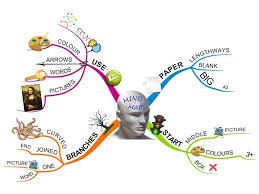The Importance of Reading for Personal Development
Reading is often viewed as a hobby or an educational activity, but its impact goes far beyond entertainment or academic achievement. In fact, reading is a powerful tool for personal development. It can enhance your knowledge, broaden your perspectives, and strengthen essential skills like critical thinking, empathy, and creativity. In this article, we will explore why reading is crucial for personal growth and how it contributes to building a more well-rounded, successful life.
1. Expands Knowledge and Increases Learning
One of the most immediate benefits of reading is the accumulation of knowledge. Books—whether they are fiction, non-fiction, or self-help—introduce new ideas, concepts, and information. Reading allows you to explore a wide range of topics that might not be covered in your daily life or work environment.
When you read about new subjects, you gain insight into various industries, historical events, philosophies, or scientific advancements, which can broaden your worldview. This knowledge can be applied in practical ways, whether you’re problem-solving at work, engaging in discussions, or simply enriching your own understanding of the world.
2. Stimulates Mental Growth and Cognitive Function
Reading is like a workout for the brain. It requires focus and concentration, and it engages several cognitive functions such as comprehension, memory retention, and analysis. When you read regularly, your brain forms new neural connections, keeping your cognitive abilities sharp.
In fact, studies have shown that reading regularly can improve mental functions such as memory, vocabulary, and critical thinking skills. It strengthens the brain’s ability to process information, understand complex ideas, and retain details. This continuous mental engagement can help prevent cognitive decline as we age, maintaining mental sharpness over time.
3. Improves Focus and Concentration
In the age of constant digital distractions, many people struggle with focusing on a single task for an extended period. Reading requires sustained attention, and regularly engaging with books can help train your brain to focus for longer periods. Whether it’s reading a complex novel or a technical manual, immersing yourself in a book forces you to block out distractions and concentrate on the material at hand.
The practice of reading not only improves concentration while reading but also has long-lasting effects on your ability to stay focused during other tasks in daily life, whether at work or in personal activities.
4. Enhances Vocabulary and Communication Skills
One of the natural benefits of reading is the expansion of your vocabulary. The more you read, the more words you encounter, and this enriches your language and communication abilities. Exposure to diverse writing styles and linguistic nuances helps you improve your speaking and writing skills.
By expanding your vocabulary, reading also enhances your ability to express yourself clearly and articulately. This is particularly valuable in both personal and professional interactions, where effective communication is key to building relationships and achieving success.
5. Promotes Emotional Intelligence and Empathy
Reading, especially fiction, provides an opportunity to step into the shoes of various characters and experience life from their perspectives. This not only allows you to gain insights into different cultures, beliefs, and experiences but also helps develop emotional intelligence. As you understand the motivations, struggles, and triumphs of characters, you build your own capacity for empathy.
Empathy is the ability to understand and share the feelings of others, and it is a crucial component of emotional intelligence. By reading diverse literature, you can better relate to people from different walks of life, improve your interpersonal skills, and navigate social situations with greater awareness and sensitivity.
6. Encourages Critical Thinking and Problem-Solving
When you read, you’re often required to analyze situations, reflect on characters’ decisions, and evaluate outcomes. This stimulates critical thinking, as you think about the motives behind actions, the consequences of decisions, and how scenarios could unfold differently. Reading encourages you to question, reason, and analyze—skills that are vital in everyday life, from making informed decisions to tackling complex problems.
Moreover, the problem-solving aspects in books, particularly in non-fiction or self-help genres, can be applied to real-life situations. Many books provide frameworks and strategies for overcoming challenges, which can empower you to approach your own obstacles with a fresh perspective and actionable steps.
7. Boosts Creativity and Imagination
Reading, particularly fiction and fantasy genres, sparks imagination. As you visualize the scenes, characters, and worlds described in a book, your creativity is exercised. Fiction allows the mind to stretch beyond reality, encouraging creative thinking and the ability to visualize abstract ideas.
For example, reading fantasy novels can transport you into other worlds, inspiring innovative ideas, while non-fiction books can offer solutions to real-world challenges, fueling creativity in practical ways. Whether it’s coming up with new ideas for a project at work or finding unique solutions to problems in your personal life, reading stimulates your creative abilities.
8. Helps Manage Stress and Improves Mental Well-Being
Reading can also be a therapeutic activity that helps reduce stress and improve mental well-being. When you immerse yourself in a good book, you escape from the pressures of everyday life. It provides a mental break and allows you to relax by focusing on something other than your worries.
In fact, studies have shown that reading for just six minutes can reduce stress levels by up to 60%. Whether it’s reading fiction for entertainment or self-help books for personal growth, reading offers a way to unwind and clear your mind, reducing feelings of anxiety and tension.
9. Fosters Lifelong Learning and Continuous Improvement
Reading nurtures the habit of lifelong learning, which is a key component of personal growth. As you continue to read, you expose yourself to new perspectives, challenges, and ways of thinking. This ongoing education encourages you to continuously seek self-improvement and embrace new opportunities for development.
Lifelong learning keeps you adaptable, curious, and open to change. It encourages personal growth in every area of life, whether it’s in your career, relationships, or overall well-being. Reading helps you stay engaged with the world, constantly discovering new things and improving yourself in the process.
10. Provides a Sense of Accomplishment and Purpose
Finally, reading provides a sense of accomplishment. Completing a book—whether it’s a novel, a non-fiction work, or an educational guide—gives you a feeling of satisfaction and progress. It contributes to a sense of purpose as you continue to grow intellectually and personally. Reading also offers a form of personal enrichment, allowing you to engage with content that inspires, educates, and motivates.
Conclusion
Reading is far more than just an activity for passing the time. It is an essential tool for personal development, offering countless cognitive, emotional, and practical benefits. From improving your mental sharpness to enhancing your empathy and creativity, the importance of reading cannot be overstated. By dedicating time to reading regularly, you invest in your own growth, expanding your knowledge, refining your skills, and enriching your life in ways that will have a lasting impact. Whether you are reading for education, self-improvement, or enjoyment, the act of reading helps shape you into a more informed, well-rounded, and thoughtful individual.


